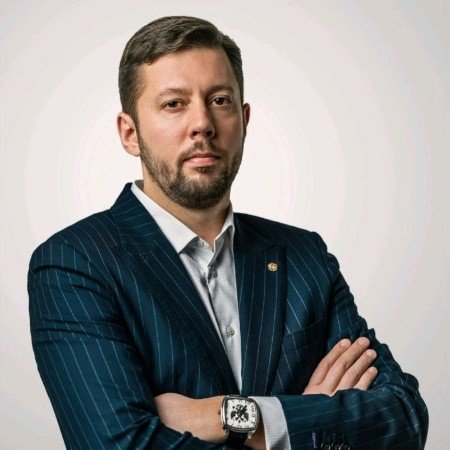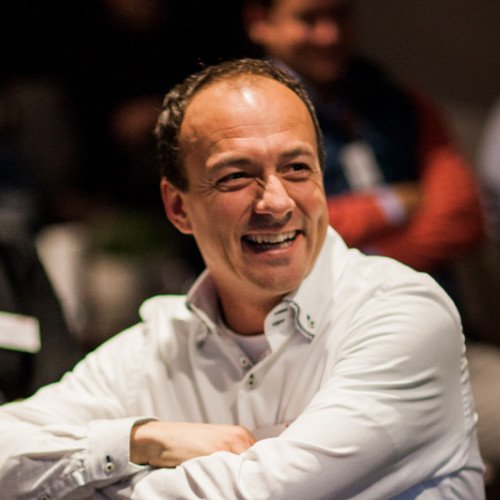The blockchain industry is a youngling, but as lively (and at times, downright notorious) as it is juvenile. Since Nakamoto’s landmark publication of the bitcoin whitepaper circa 2008, the sector has blossomed from a single-minded focus on cryptocurrencies into a sea of blockchain companies and applications that suggests the disruption of seemingly every business trade under the sun.
Yet accompanying this continuous widespread interest spurt is the increased threat of governmental and financial regulatory crackdowns, ranging from basic modulatory measures in some markets to strict control in others, and even proclamations of overall prohibition.

As blockchain steadily gathers steam, a logical question is arising: If these institutional hurdles are to be overcome, should blockchain companies move to embrace the restrictions imposed on them? I turned to industry experts to provide thought leadership on the matter.
Governmental Opinion on Regulations
On a governmental level, there is much international division as to how regulation of this new financial market should be put into effect. While China has taken the approach of an all-out ban, Japan is embracing adoption. The U.S. Securities and Exchange Commission (SEC) is gunning for blockchain tokens that are considered securities, leaving not even Ethereum safe in its clampdown quest. At the same time, countries like Singapore, and Switzerland are considered havens for Initial Coin Offerings (ICO), the popular fundraising model introduced by blockchain startups that in 2017, surpassed venture capital in terms of overall capital raised.
The blockchain news space is running rife with stories about regulatory concerns. While the industry continues to expand at unprecedented rates, governmental and financial regulators have been slow to react.
The G20 Argentina meeting in March 2018 was anticipated to close with tangible regulatory guidelines around cryptocurrencies, blockchain technology’s most well-known use case. Instead, the international governments and central bank governors forum merely promised to continue monitoring the industry.
A July 2018 deadline was announced, with a comment from Federico Sturzenegger, President of the Central Bank of Argentina who opened the G20 proceedings, indicating that policymakers’ pilgrimage down Regulations Road will remain painfully slow:
"In July we have to offer very concrete, very specific recommendations on, not 'what do we regulate?' but 'what is the data we need?'"
Mark Carney, chair of the Financial Stability Board, attributes this sluggish approach partly to the fact that cryptocurrencies don’t pose a threat to financial markets, as their peak combined market value comprises less than 1% of the world economy.
The International Monetary Fund shares this sentiment, with its 2018 Global Financial Stability Report of the opinion that it is early days yet for counting cryptocurrencies as a viable financial system:
“It is impossible to know the extent to which crypto assets may transform the financial infrastructure and whether most new crypto assets are likely to disappear as in past episodes of technological innovation (as many tech companies did during the boom of the late 1990s, for example). Before they can transform financial activity in a meaningful and lasting manner, crypto assets will first need to earn the confidence and support of consumers and financial authorities. The initial step in this process will involve coming to a consensus within the global regulatory community about what crypto assets are—for example, a security or a currency—and the role they can play in the financial system. Although Bitcoin was indeed created to circumvent a lack of trust among trading parties (Nakamoto 2008), a series of notorious fraud cases has undermined this goal, suggesting increased prudential regulation may be needed. At present, crypto assets do not appear to pose risks to financial stability. However, regulators should be vigilant to the potential for financial stability challenges that could arise should crypto assets be used more widely.”
The Banking Sector on Regulations
Banks the likes of Bank of America, Goldman Sachs, and JPMorgan Chase, however, are not so easily placated. They have all listed cryptocurrencies as a threat to their business model in their annual 10-k filings with the SEC.
Bank of America:
“The widespread adoption of new technologies, including internet services, cryptocurrencies and payment systems, could require substantial expenditures to modify or adapt our existing products and services.”
Goldman Sachs:
“We may be, or may become, exposed to risks related to distributed ledger technology through our facilitation of clients’ activities involving financial products linked to distributed ledger technology, such as blockchain or cryptocurrencies, our investments in companies that seek to develop platforms based on distributed ledger technology, and the use of distributed ledger technology by third-party vendors, clients, counterparties, clearing houses and other financial intermediaries.”
JPMorgan Chase:
“Both financial institutions and their non-banking competitors face the risk that payment processing and other services could be disrupted by technologies, such as cryptocurrencies, that require no intermediation.”
Blockchain Industry
With awareness, investment, and adoption around cryptocurrencies and overall blockchain technology in their infancy, there is a definitive risk tied to those governmental and financial regulators who are staking authoritative claims in an industry designed to offer a decentralized alternative to the centralized governance that led to the 2008 financial crisis. Simultaneously, the unregulated environment that blockchain companies exist in has led to widespread fraud, losing investors an estimated USD$23 million per day in the first two months of 2018 alone due to financial skulduggery by con artists posing as legitimate startups, hacking, and phishing.
In light of the tug-of-war between traditionally minded authorities and the pioneering new ventures actively shaping the world of tomorrow with applications utilizing this cutting-edge technology, it begs the question:
Should blockchain companies embrace regulatory requirements, including the notion of voluntary self-regulation?
The latter is a concept proposed by the Winklevoss twins Cameron and Tyler, venture capitalists and co-founders of digital asset exchange Gemini who held 1% of all bitcoin in existence in 2013, a portfolio that has since skyrocketed to worth than $1.3 billion.
“The promise of virtual commodities and their impact on the future will be profound—but individuals and institutions need to feel safe and secure when transacting. We believe a thoughtful SRO framework that provides a virtual commodity regulatory program for the virtual commodity industry is the next logical step in the maturation of this market.”
In order to gauge market opinions, I took to posing this question to blockchain experts and thought leaders, with the proviso that their answer must take into account the overall goal of increasing industry growth and widespread adoption.
The Lawyer
Amy Wan

Amy Wan, Esq., is the co-founder and CEO of Sagewise, a smart contract dispute resolution infrastructure for smart contracts. A frequent speaker at tech and legal events, she has been named as one of the Top 10 Women to Watch in LegalTech by ABA Journal. Before her foray into blockchain, she served on multiple US-World Trade Organization delegations, and have been instrumental in trade agreement negotiations, roundtables, and forums for the Office of the United States Trade Representative, the State Department, and the US Department of Transport.
According to Amy:
“Blockchain startups should embrace better governance, whether self-imposed or not, in order to allow blockchain technology to achieve its true potential. There will always be bad actors--and the lure of easy, quick money tends to draw them in--but the rest of the players in the space should endeavor to do what is best for the overall ecosystem.”
The ICO Advisors
Vladimir Nikitin

Vladimir Nikitin is a world-class consulting professional with over ten years experience in the legal, finance, retail, and IT industries. He is an ICO advisor and rated as a top 5 expert according to ICOBench. Nikitin has advised and provided consultancy services to nearly 60 ICOs.
According to Vladimir:
“In general, I agree with the opinion that it is necessary to ensure the safety of all individuals in blockchain interaction. Now the ICO market and the blockchain community are only being formed and it is very important to form it correctly and with a good reputation so that there is a prospect for further development of this industry. With time, many mechanisms and methods will be invented to protect everyone from dishonest persons. Changes in this direction are necessary.”
Simon Cocking

Simon Cocking is Senior Editor at Irish Tech News, Editor-in-Chief at CryptoCoinNews, and a freelance writer for Sunday Business Post, Irish Times, Southern Star, IBM, G+D, and others. He is a top-ranked blockchain influencer appearing on many global influencer lists, and as a business mentor and advisor has worked with 110+ successful ICOs to date. He’s an accomplished public speaker at international blockchain and tech events. As an entrepreneur, he has co-founded or founded seven successful companies.
According to Simon:
“KYC, AML, [and] whitelisting are vital. We are also advising ICOs to be as proactive as possible, to future proof the success of their projects too. It makes sense, it offers better value to your investors, and if you are not a scam, then why would you not be doing it?
[Regulation] is the sign of a maturing market. The current volatility, hacks and other less than secure practices all damage the long-term value of blockchain-related projects. It's a smart, enlightened self-interested play, and if you're not doing it then you will be overtaken by those who are.”
Nikolay Shkilev

Nikolay Shkilev is a crypto enthusiast, mentor, and ICO adviser, having advised nearly 40 blockchain ICOs. He is rated in the top 5 in people of blockchain according to ICOBench, and is the founder of Top ICO Advisors. He is also the founder and CEO of Russian-based Private Business Club, and has received many titles and awards in the Russian IT sector, including the Self-Made Russia award, Tech guru, Super TOP award, and the Kremlin’s Enterprise of the Year.
According to Nikolay:
“This market should be regulated, of course, but only minimally, and the rules should be understandable and same for everyone.
On the one hand, investors need to be protected, on the other hand, excessive regulation will kill this industry, and it will also ruin the possibility of small projects with great ideas to become popular throughout the world.
For the first time, every person on earth has the opportunity to invest in any promising project at its initial level, even $10. The inventors also have the opportunity to make a great project without having millions of dollars and contacts.
Any solid regulation of the market will kill this evolution and the development of humanity.”
Richard Kastelein

Richard Kastelein is the founder of industry publication Blockchain News, partner at ICO services collective CryptoAssets Design Group, and director of education company Blockchain Partners, an Oracle Partner. He is a prominent ICO advisor for multiple blockchain startups, a frequent keynote and panel speaker at events across the globe, and holds an honorary PhD and Chair Professorship at Jiangxi Ahead Institute of Software & Technology (Blockchain Faculty) in China. He is a fellow of the Royal Society of Arts in the UK.
According to Richard:
“Blockchain companies should reject government regulatory initiatives with full force and really push for self-regulation.
Tokenomics is a new science and these new asset classes don't fit into the current regulatory frameworks and should really not even be looked at as currencies, commodities or securities - as they can shapeshift and morph into combinations of the aforementioned or entirely new types of asset classes or virtual commodities where authority is inherently decentralized and algorithmic
- and will be shaped by artificial intelligence.
As Dr John Clippinger writes in VentureBeat: "...a new generation of tokens is being designed to adapt or adjust to changes in order to preserve some state, such as price stability, adjusted risk, diversity, or liquidity – or all of the above."
We don't need centralized authorities to write the rules, we need to write the code that sets the rules and built smarter tokens - and self-regulate as an industry via our own standards and crowdsourced due diligence. We need a FINRA or a FINMA of our own, not try to wedge into an outdated regulatory framework like the SEC where investing in innovation has more or less become an invite-only club of insiders.
I find it scandalous that an average blue-collar American can walk into a casino and blow their children's college fund on the tables with no problem but can't invest in innovation and technology unless they have over a million dollars in assets and make over USD$200,000 a year. All this under the guise of protecting consumers in a day and age when the average American reads more in a month online than someone read in a lifetime in the 30's when these laws were initially created to justifiably protect ignorant investors.
I believe that innovation investment needs to be opened up to all and that KYC/AML should be managed by the industry, not government. And like the Internet, the government needs to take a hands-off approach - the chance being if they do choose to headlock the industry, they run the risk that this new liquidity for innovation will flow to countries that are open and willing to allow self-regulation or have crypto-friendly laws in place like Malta, Gibraltar, Singapore, Switzerland etc.”
The Wealth Manager
David Drake

David Drake chairman of his family office LDJ Capital, has acted as General Partner (GP) and Limited Partner (LP) investor with his partners in fund-of-funds, realty funds, venture capital funds, and hedge funds. Drake's investments currently have 50+ global directors that maintain relations with institutions and family offices with access to over a trillion dollars in assets. He manages and co-invests in alternative assets with the top 30 family offices out of his 5,000 family office and institutional investor reach.
Drake’s access to 100,000 investors is maintained through his media asset, The Soho Loft Media Group, which has produced & sponsored over 1500+ finance conferences since 2002, such as events with institutional media leader Thomson Reuters and with sponsors from NASDAQ, NYSE, KKR, and the Carlyle Group. Drake is a digital automation advocate for private equity, and have lobbied the US Congress on the JOBS Act since 2011. He represented the US Commerce Department at the EU Commission in Brussels and Rome in 2012, was invited to the White House Champions of Change ceremony in Washington, D.C., and was a speaker at the UK Parliament in 2013.
Since 2011, after collaborating on the JOBS Act to create new laws underlying all fundraising in the U.S. for all ICOs, Drake has been viewed as a cryptocurrency leader. His crypto hedge funds hold crypto, ICOs and fintech equity as seed investments via ICO investments. His company also offers bridge financing to seed upcoming ICOs, and Drake has personally served as ICO advisor to a plethora of blockchain startups.
According to David:
“Regulation has been tested and vetted 80+ years since 1933 and 34 Act was created for the SEC. It was a response to the 1929 Great Depression and regulation has a purpose that's needed. Security tokens are being created, and the US is the financial world power. Regulation needs and must be implemented to avoid fleecing of Americans. However, what we learned from the jumpstart, our business startup Act, is that the regulation that was implemented was handicapped and inefficient - regulation A and the crowdfunding laws utterly failed as liquidity options at scale for companies.
Now there has to be a balance of good and bad and efficient and inefficient. Tokens is a global phenomenon and restrictions in the US will hamper international buyers of tokens into the US market. I think that's something that should be an open option and not a closed-ended option.
Do I agree with the Attorney General New York sending out letters to 13 exchanges to see their integrity and safeguards? Do I agree that it should be restrictions on who can have licenses to run exchanges, yes? The job of the Security Exchange Commission is to protect US citizens and to do so they need to implement measures to make sure that the reporting we see in public companies are being followed with same scrutiny and expectations from these token companies.
Today there's little to no accountability, responsibility nor governance in token companies and people are abusing the funds.”
The Thought Leader
Xiaochen Zhang

Xiaochen Zhang is the president of Fintech4Good, a global fintech and blockchain network that provides incubation, acceleration, and investment services to cutting-edge technology solutions in emerging markets. He serves on the Crowdfunding Professional Association Board of Directors, the UN ESCAP Digital Economy Task Force, and as a senior adviser of the China Social Entrepreneurs Foundation and Inter-America Development Bank. He is also the co-chair of the Insurance Blockchain Lab, Smart City Blockchain Lab and Blockchain4SDGs Lab. He is a keynote speaker for leading blockchain and FinTech Summits and a member of Board of Advisers for some of the most innovative start-ups. Additionally, he is a contributor to CCTV, a host of Blockchain Million and FinTech in China Show.
As a startup incubator and accelerator mentor, he brings more than 16 years of thought leadership and global experience to build impactful solutions and scale up innovative ideas in North America, Africa, Latin America, Europe and Asia. Prior to FinTech4Good, Xiaochen advised government agencies and multinational organizations on innovation, emerging technologies, and investment in positions at the World Bank, United Nations, and other international partnership platforms. He has also taught innovation and venture building at leading business schools.
According to Xiaochen:
“Blockchain, ICOs and cryptocurrencies are different but related concepts. Blockchain companies which use ICOs to raise fund should comply with fundraising frameworks defined in each country. It is the fundraising which should be regulated, not blockchain technology. Cryptocurrency is an important blockchain-based innovation. When cryptocurrency is traded as assets, relevant asset trading-related regulations should be followed. It is asset trading, not blockchain technology, which need to comply. Blockchain companies are creating new models for almost all sectors. Many times, their products can be categorized in existing services offerings. All these products should follow existing framework. Both the regulators and blockchain companies have to raise awareness and improve capacity to make new blockchain solutions work for society and for people.”
The CEOs
David Honeyman, Lendo.io

David Honeyman is the CEO of Lendo.io, a cryptobanking ecosystem that allows holders of cryptocurrency assets to borrow fiat currency using their digital assets as security. He has a law degree and a long, successful career in real estate development and financing. This have included management positions with two of the UK's largest property development companies, both listed on the London stock exchange with market caps of over 5 billion pounds, and a position as regional manager for TFG, one of Dubai’s largest property developers, who are currently partnered with Wyndham Hotel Group – the largest hotel operation chain in the world.
According to David:
“There is no question in my mind about the need for regulation. It’s an absolute must – especially where fintech-related products and services are involved. In Lendo’s case, as the majority of our borrowers will be retail consumers rather than large corporations, it’s essential that they are afforded all the protection and safeguards that they would get in the conventional loan market. In other words, they need protection against aggressive lenders, abusive contracts, hidden charges, exorbitant interest rates and all the other potential dangers that lurk in the loan industry. That’s why we have chosen to work only with regulated lenders. We need to ensure that they are already operating under a licenced framework before we enter into any commercial partnerships with them.
Lendo has already signed up several FCA regulated lenders to pilot the scheme and believes that more will quickly follow once they see the advantages of lending against secured crypto collateral. The FCA (Financial Conduct Authority) is the UK’s licensing and regulatory body who controls all financial services related activity and companies.
Following several decades of experience in raising property development finance through various bond, share and equity programmes, I recognised the importance of combining the exciting new power of crypto technology with conventional business wisdom and finance.
Although blockchain lending is new (using cryptocurrency as collateral), everything else should remain rooted in the same mainstream financial principles which have been designed to balance consumers’ needs with that of the lender."
Florian Goette, Neco Finance

Florian Goette, a serial entrepreneur, investor, filmmaker, and environmental activist, is the founder of Neco Finance, a sustainable “eco currency” regulated by collective intelligence. Neco’s vision is to collectively develop a fair financial system that generates social, ecological and economic value. As a non-profit organization, Neco Finances aims to provide a free and transparent digital currency that is sourced and controlled by its user community. In order to develop a more transparent and eco-friendly cryptocurrency, Neco will be built using Stackchain technology, a cloud-based Distributed Ledger Technology (DLT).
Goette was formerly the founder and CEO of Data Scout, the world's first cloud-based Master Data Management (MDM) solution, which he sold to Informatica, a Silicon Valley-based corporation and global leader in data integration. His investment firm owns investments in solar farms, solar roadways, electric cars, energy storage and smart grid technologies. As a filmmaker, Goette has filmed all major shark species around the globe.
According to Florian:
“A regulatory framework is a necessity in any industry, and it is particularly crucial for the financial sector. Money is the lifeblood of our societies and plays a key role in business and personal life. Many past crises, such as the financial crisis of 2008, have been caused by a lack of regulation and transparency. The derivatives market, one of the reasons for the global financial crisis, is an example of such an unregulated and intransparent market.
Let’s learn from our past mistakes and create an effective and progressive form of regulation for the crypto markets. As in many other industries, regulation can improve stability and security for the players in the market and provide a solid basis for future growth. I believe that a collective global self-regulation framework for virtual commodities is significantly more effective than the typical “patchwork” of bureaucratic national regulations through government authorities. To avoid the negative effects of lobbyism and centralization on such a self-regulation framework, I propose a system of collective regulation that involves all stakeholders equally including miners, investors, users, banks and governments.”
Zhuling Chen

Zhuling Chen is the co-founder of aelf, a next-generation decentralized cloud computing network that will serve as a Central Business District for commercial enterprises, enabling businesses to operate their applications on the public chain domain or private chains without the hassle of building their own.
According to Zhuling:
"Regulation is essential for the growth of the blockchain and cryptocurrency space, as companies need to be held accountable for the capital they raise from their investors through token sales. In addition, regulations are needed to prevent market manipulation and insider trading -- both of which were abuses that took place in the traditional stocks and bonds market in the 1950s and 1960s before a solid regulatory framework was put into place.
However, since the government is still debating over how to regulate crypto and blockchain companies, there are still a lot of legal grey areas in the industry. As such, it’s important for projects to take a self-regulatory approach to safeguard their business and ensure they are fully compliant."
Conclusion
While opinions are divided as to whether regulations are necessary, or even healthy for the growth of a decentralized alternative to the global monetary system, it’s clear that the business activities of some blockchain startups - such as a lending and cryptobank institute Lendo or alternative ecocurrency Neco - naturally lend themselves towards regulatory compliance. Whether these should be regulations imposed by traditional institutions or industry-specific bodies, remains the looming question.
Ultimately, the current regulatory clash drives home the fact that even in capitalist nations, the notion of a 'free market' is little more than an illusion. Irrespective of the level of innovation and inherent systematic change proposed or implemented by private enterprise, every business operating within country borders are fundamentally subject to its national and, if relevant, regional laws and regulations.

Congratulations @nadjabester! You have received a personal award!
Click on the badge to view your Board of Honor.